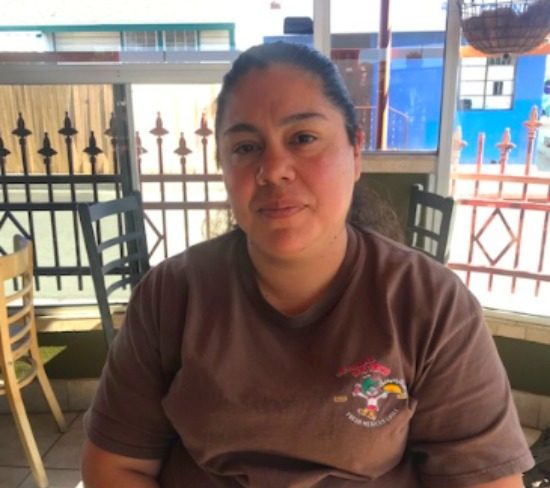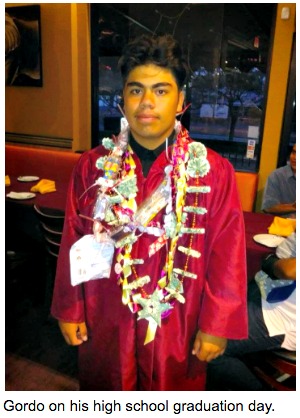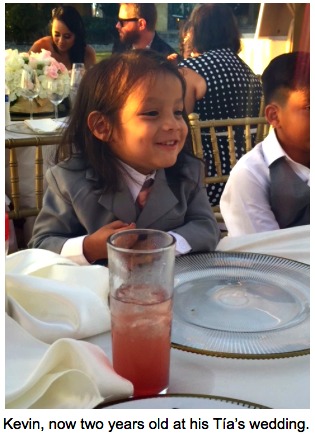The State of California guarantees a free public education to youth through the completion of twelfth grade. Along with the responsibility of providing a free education, the public school system is responsible for meeting the needs of youth with disabilities. The Individuals with Disabilities Education Improvement Act (IDEIA) of 2004 is federal law that all States must follow. The main goal of IDEIA is, “to ensure that all students with disabilities have available to them a free appropriate public education that emphasizes special education and related services designed to meet their unique needs and prepare them for further education, employment and independent living.” In the public school system, we provide these special education services to youth and families up to age twenty-two.
For Latino parents, the educational system can be daunting, especially when they encounter language barriers. Parents drop their students off at school with faith that the teachers, staff, and school administrators will always act in the best interest of their child. Parents dutifully take their children to doctors appointments with the belief that the doctor will provide the best and most timely care for their child. Unfortunately, this trust can be misplaced. As a teacher and school principal (in elementary and high school), I was frequently shocked and dismayed that students with obvious learning disabilities, emotional disorders, and autism were not receiving special education services. Of course, my school team evaluated and made appropriate placements, but it angers me to think about the lost years of educational supports.
Angelica is a small business owner in San Marcos, a community in the north county region of San Diego, California. She is the mother of five children, Daisy (20), Manuel (19), Victor “Gordo” (17), Alex (6), and Kevin (2). Her son Gordo was diagnosed with Attention Deficit Hyperactivity Disorder (ADHD) in elementary school, and her youngest son, Kevin, has been receiving special education services since he was a year old. I share her story because she fought the school and medical system to get the services that her children needed and are promised. I sat down with her to talk about her experience and document her advice to other parents.
Tell me how your experience with the special education system began.
Victor was born in 2000 and started kinder in 2005. Immediately, I began receiving complaints that he was falling asleep in class, fidgeting, had a lack of concentration. In first grade, I heard the same complaints. I thought it was normal behavior. In second grade, the concerns continued. It was then that he peed and pooped on himself because the teacher wouldn’t let him go to restroom. The school staff kept him in restroom for forty five minutes because of the smell. I then had a meeting with teacher and who said he was disrespectful. Having had enough I asked for a meeting with the principal and a school psychologist who asked if Gordo had ever been tested for Attention Deficit Hyperactivity Disorder (ADHD). I didn’t know what it was so I went to the library and started reading about ADHD.
His pediatrician evaluated him, and he was diagnosed. We tried 10 different medications until they found the one that worked. We did everything possible to help him. We took him to therapy, a chiropractor, tried homeopathic measures and adjusted his diet. Somehow we found a way to pay for a tutor because he was two years behind on reading. I asked for another meeting when he was closer to third grade. At this meeting they told me again, what we already knew, his math was good but he was behind on language arts and they finally explained and suggested special education testing. After so many years of struggling, the school was finally offering help. I felt an anger of injustice rise within me as I thought about other students who may be struggling and whose parents might not know how to push. I told them, “I don’t want to offend anyone, and I don’t want to be seen as a rude mom, but this is ridiculous. You are the experts. Now after all this time? I’m the type of parent who is always involved. So you’re telling me that if a parent isn’t involved or getting help in their own then they have to wait for you?” I wanted to trust system and didn’t want to be disrespectful and question the system. But I had to be on top of the doctors and the school to get the help Gordo needed. I found that I had to work hard and not trust that others are going to do the best for the health of my child. Regardless of a parent’s education or experience, their child’s success is based on your push and focus.
How’s Gordo doing now?
Between 5th and 6th grade, we took him off meds for summer, and he did really well. Since then we have kept him off meds and check in with his teachers regularly. We also limited his soda and sugar intake. He just graduated from high school and is taking the year to focus on baseball. His plan is to play with a travel team and hopefully be recruited by a University on a baseball scholarship.
That’s wonderful you must be so proud of him! Now let’s talk about your journey with your two year old, Kevin. He’s still so young, how did you know that he might have different needs?
I had four children already. I saw that Kevin wasn’t doing things normally. He wasn’t crawling on time. He wasn’t eating the way older kids ate. The pediatrician would tell me, “Every kid is different. It’s normal.” He didn’t say mom or dad. I started to Google milestones, and he wasn’t meeting them. By his 12 month check up with his pediatrician, he was not walking or talking. The doctor said, “We will keep an eye on him. Mom, I think you’re being hard on yourself. I think you’re stressing and being hard. Let’s watch him. At 16 months, we can evaluate if he’s not walking.” But I insisted, “I don’t want to to wait. There’s nothing different. The toys, the interaction, has all been the same as with my other kids. If there’s nothing wrong, then thank God, if not, then I want to know right away. I don’t want him to lose time. What are your reasons for wanting to wait? I want him evaluated now. I want him seen by a specialist.” When a doctor tries to stop you like that, we just take it. Especially Latinas — we just take it.
I insisted until the doctor agreed and submitted for insurance approval. At Rady Children’s Hospital, he was approved to be evaluated by six different specialist-motor skills, speech, eating. That’s a lot of appointments to manage. Your voice does count. You have to speak up. I told the person setting the schedule, “I work. I would prefer to miss one day, can you make it happen where I can have appointments all on same day?” You have to speak up for what you need.
What were the results of the evaluations?
We found that Kevin was behind 6 months developmentally in speech and fine and gross motor skills. At 12 months, he was still eating purees, and at 19 months, he started eating solid food. He started walking at 17 months. I accepted every single resource that the doctors and the Regional Center offered me. Due to his IEP, he was able to go to Head Start which has been great for his development. He is two years old now and continues to receive therapy.
What advice do you have for other families who may be needing or are receiving special education services for their child?
- You need to let doctors, schools, and specialists know what your child’s needs are and what your needs are and not just accept what is convenient for them.
- Parent involvement is very important. You have to be the voice for your child and yourself. You have to show the schools and doctors that you are present and holding them accountable.
- Involve your family. Your spouse/partner, your siblings, your other children, your beloved friends, they are all a part of your support system. Ask for help.
- Don’t be embarrassed that your kid has a special need no matter how small or big the need is. It’s ok to let the world know that you have a kid with special needs. Macho dads need to understand that its ok, it’s not their fault, it’s not the mom’s fault, it’s not the dad’s fault. It’s just science, how everything is connected.
- Incorporate healthy food and alternative medicine as much as possible.
- If you let your kids watch TV make sure it’s quality educational TV, like Sesame Street or Mickey Mouse Clubhouse.
- Tenemos que aceptar el ayuda, y pedir la ayuda. Que lo manda dios? It doesn’t really happen that way. La mujer latina es muy luchadora, ha pasado el tiempo, ya no estamos calladitas, We don’t take no for an answer. It’s an important to let our voice be heard.
Below are links in English and Spanish that provide information about learning disabilities and special education.
PACER Center
Online site started by parents with a goal of supporting other parents regarding special education
Information in Spanish
http://www.pacer.org/es/publications.asp
Information in English
http://www.pacer.org/publications/spanish.asp
LD Online
Online site that provides information on learning disabilities and ADHD.
Special education for students who are English Learners (English)
http://www.ldonline.org/espanol?lang=en
Special education for students who are English Learners (Spanish)
http://www.ldonline.org/espanol
United States Department of Education: https://www.specialeducationguide.com/pre-k-12/tools-and-research/support-and-resources-for-parents-and-teachers/
National Education Association:
http://www.nea.org/tools/special-education-IDEA-resources.html
Marisol Rerucha
Latest posts by Marisol Rerucha (see all)
- Recordando a Columbine: “Me Llaman Sr. De” - April 22, 2019
- Remembering Columbine: “They Call Me Mr. De” - April 22, 2019
- Conozca a Leticia Cazares, una Guerrera de Chula Vista y Defensora de la Justicia Social, Candidata a la Junta de Gobierno de Southwestern College - November 5, 2018
- Meet Leticia Cazares, a Chula Vista Warrior and Social Justice Advocate, Candidate for Southwestern College Governing Board - November 5, 2018
- Los Educadores Deben Involucrar a los Padres, No Tratar de Reemplazarlos - October 22, 2018



